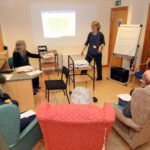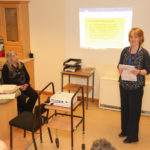Moira Flett
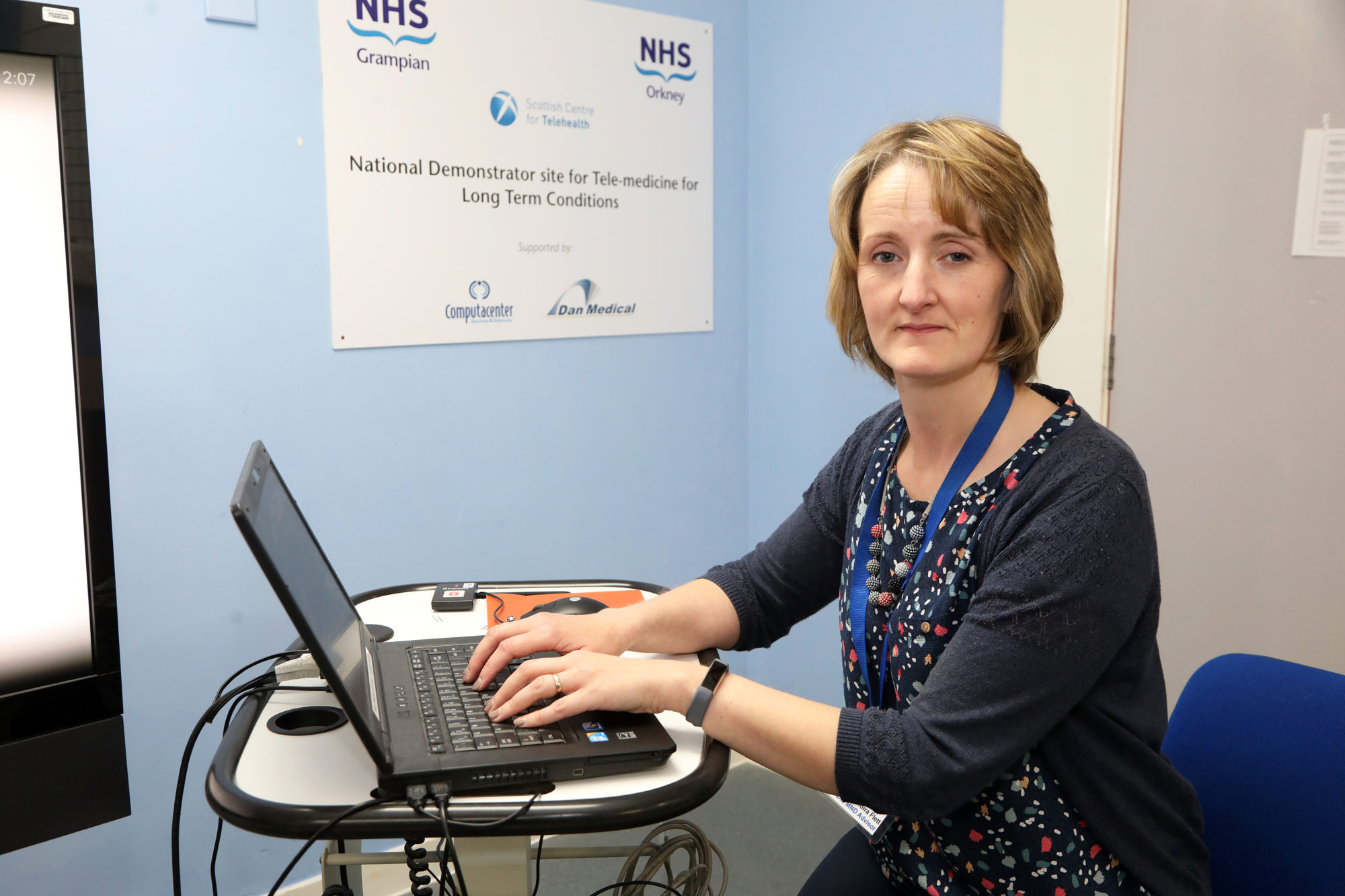 Moira Flett has been working as the Multiple Sclerosis (MS) Advisor for Orkney for almost ten years. Recently, Motor Neurone Disease (MND) was added to her role in providing a specialist service to patients across the isles.
Moira Flett has been working as the Multiple Sclerosis (MS) Advisor for Orkney for almost ten years. Recently, Motor Neurone Disease (MND) was added to her role in providing a specialist service to patients across the isles.
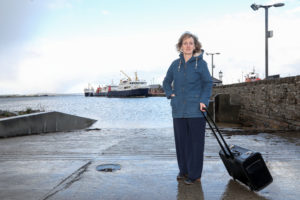
I grew up on the island of Westray, one of the smaller Orkney islands, and I knew I always wanted to be a nurse – way before I even started at school. I can recall a district nurse coming to my house when I was young to see my grandmother and I remember telling her I wanted to be a nurse. After finishing my nurse training through Foresterhill Nursing College in Aberdeen I worked in a care of the elderly hospital in Orkney for a while before moving into the community.
I am extremely proud now to have worked in a Community Nursing role for almost 20 years, first as a Community Staff Nurse, then as a Family Health Nurse/Community Nursing Sister and now as a Specialist Nurse (MS & MND Advisor).

I try and stay as flexible as I can to meet the needs of patients. Every day varies, it is adjusted around providing support advice, information and education to everyone affected by MS and MND. This is to individual patients but also their families and carers and the services involved in their care. I do that right through the disease trajectory.
A home visit would involve me doing an initial assessment or a review which identifies issues they’re having and gives each person an opportunity to set out what matters to them. We work together to identify what their main concerns are and put a plan in place to manage their symptoms. The assessment also identifies their current self-management strategies, as well as the family’s existing strengths and resources.
A typical day will also involve sharing my expertise with healthcare and other professionals and services – statutory and voluntary. By listening carefully to their perspectives and the challenges experienced by other agencies we can work effectively together to continually improve care for those affected by MS or MND.
I am very fortunate to be a community-based specialist nurse, and I view this as key to enabling me to provide holistic and person/family-centred care. It is where people are best able to maintain some sense of autonomy and control; where they behave comfortably and naturally; and where I am best able to understand the individual, their family and their lifestyle.
- Moira Flett, Kirkwall. 29/10/18 Tom O’Brien
The geography of our island community means some of patients live a 90-minute boat journey away, and the neurologists are a 131-mile flight away. I have, however, strived as far as possible to provide an equitable service. One of the key tools to assist in achieving this is telemedicine, and I facilitate six MS Review Teleclinics per year, and telelinks with those diagnosed with MND when required. In these clinics the patient is accompanied by me in Orkney in a specialised clinic room, and the neurologist in Aberdeen links in through secure video-conferencing.
Furthermore, I travel to the smaller islands of Orkney when required and try to combine this with meeting with the health professionals based there, to discuss issues and provide education.
Fatigue is the most common of MS symptoms, and is the main cause of unemployment for those diagnosed. Since 2015, a Community Occupational Therapist and I periodically run an evidence based, six-week fatigue self-management programme.
This has been very positively evaluated by those who have attended and has also seen the creation of new friendships and sources of support between the participants.
I feel it’s very important to have that local person who is available to support and guide those affected by MS and MND through those early weeks and months after diagnosis, and afterwards.
There is usually something I can do to make things a little bit easier, sometimes this is just being there to listen to their concerns.
I provide information, advice and support to manage a range of difficult and often disabling symptoms, but it is often the apparently small things that I have facilitated, that have required me to go through and over many barriers, that make me want to do a little dance.
This is not because of what I have done, but because of the difference it makes to people’s lives. This can be something relatively small such as helping arrange to get a child to school, or having meals prepared while a parent is experiencing a relapse. They are things that matter most to the patient, and working together, in real partnership to achieve positive outcomes is the most fantastic feeling.
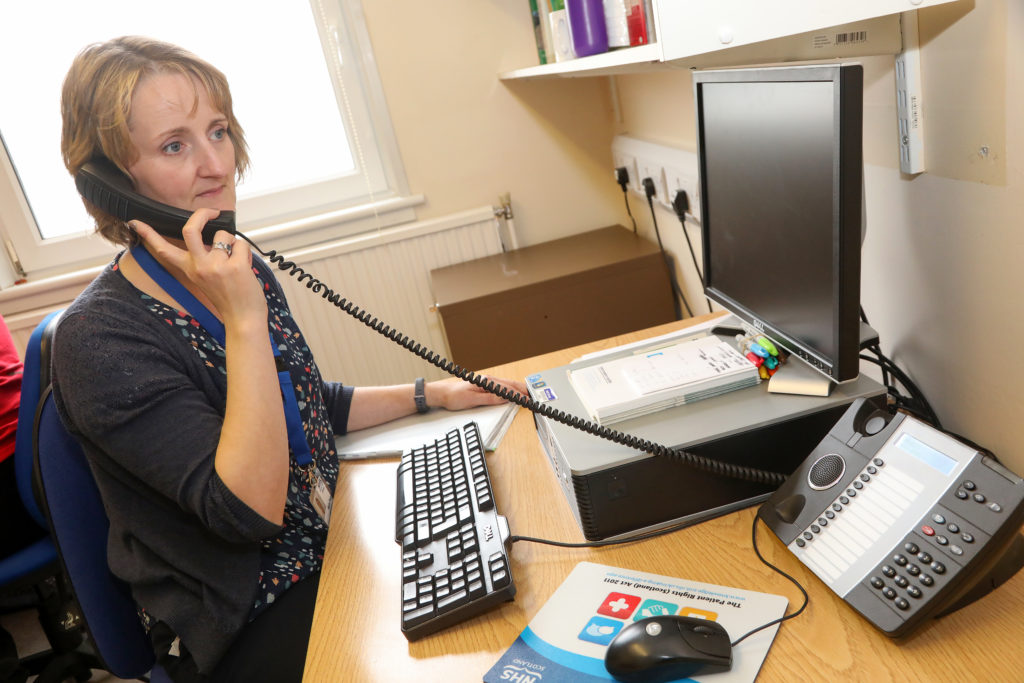
I want to explore aspects of respiratory assessment and management in MND. We do not have a respiratory team based in Orkney, which means this specialist service is provided in Aberdeen. I am using my Queen’s Nurse issue for development to investigate this further.
I am working in partnership with my colleagues both locally, and nationally to gain from their knowledge, skills and experience in MND care to collaboratively develop a plan. At the heart of this work are the patients and families who live with MND; they are the experts and their voices are the ones which are most influential in guiding this improvement initiative.
My hope is that all professionals involved in the respiratory assessment and management of MND patients, will have more clarity about each of our roles and responsibilities, and have access to the necessary training and support to do this expertly. It should form a stronger link, and more effective communication between ourselves in Orkney and the Respiratory Team in Grampian. Overall, I hope that through achieving this and working together, we can deliver evidence-based, safe, effective and person/family-centred care as close to the patient’s home as possible.
By working with patients and families on the islands we can ensure more clarity, more timely referrals, better communication links and improved care.
